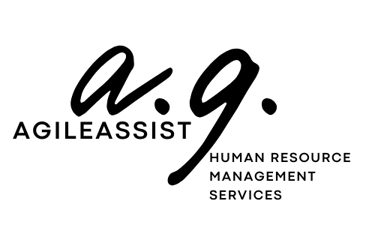Under the Shadow of the Moon: Lessons in Leadership, Labor, and Building a Stronger Philippines
Using the lunar eclipse as a metaphor, this post examines how corruption and weak institutions—exemplified by public works failures—cast a shadow over Filipino workers. It outlines pragmatic reforms (transparency, merit-based hiring, stronger oversight, skills development) and concrete actions for workers and managers, arguing that competent, ethical leaders and targeted support are crucial to restoring accountability, improving project delivery, and rebuilding a fairer work culture.
WORKPLACE REALITIESSOCIAL COMMENTARY AND WORKFORCE
CVCII
9/7/20254 min read


A lunar eclipse reminds citizens that nature operates by precise laws; it is predictable, observable and, crucially, temporary. So too are the shadows that fall upon nations when governance is weak, when institutions are hollowed by patronage, and when the ambitions of the many are frustrated by the complacency or corruption of a few.
The Filipino worker knows these shadows well: they are the delays in pay, the subcontracted jobs without security, the roads half-finished, the projects that never meet standards. The remedy is not rhetoric but hard, sustained institution-building—meritocratic recruitment, rigorous oversight, and an unyielding demand for competence.
On Labor: Dignity, Discipline, and Development The foundation of any prosperous country is its workforce. Labor is not merely a cost to be minimized but the engine of productivity, the repository of skills, and the crucible of social stability. For the Philippines, several truths are evident.
First, dignity of work must be preserved. Jobs that pay a living wage, offer predictable hours, and provide basic protections are not luxuries; they are the bedsrock of social order. Second, discipline—at both individual and institutional levels—is indispensable. Workers must be trained, punctual, and accountable; managers must be efficient, transparent, and results-oriented. Third, skills must be continuously upgraded. In a global economy, comparative advantage lies in the quality of your workforce: its literacy, technical skills, and capacity to adapt.
Corruption as the Eclipse of Progress When corruption enters the public procurement process, especially in infrastructure, it is society’s lunar eclipse. Agencies like the Department of Public Works and Highways are meant to translate public funds into public goods—roads, bridges, and schools that enable commerce and improve lives. When those funds are diverted, the consequences are immediate and severe: projects stagnate, quality collapses, risks multiply, and public trust erodes.
The lesson is stark: good intentions cannot substitute for good systems. Systems, once designed, must be executed with rigour. There must be clear standards for awarding contracts, transparent criteria for selection, and strict enforcement against malfeasance. If a government tolerates leaks and shortcuts, inefficiency and cynicism will spread faster than any infrastructure.
Practical Measures—Institutional Reforms That Work A pragmatic approach to remedying these problems includes several interlocking reforms:
Meritocratic Appointments: Staff and leaders must be chosen on competence. Political loyalty must not override capability in technical roles. Promote on demonstrable performance.
Transparent Procurement: Public bidding must be open, standardized, and monitored. Publish contracts, supplier evaluations, and progress reports. Make deviations costly and visible.
Robust Oversight: Independent audit bodies must have the authority and resources to investigate and prosecute. Whistleblowers must be protected.
Accountability with Consequences: Poor performance and corruption must meet predictable penalties. Impunity is the seedbed of further decay.
Invest in Skills: Vocational training, apprenticeships, and continual skills upgrading ensure a workforce that can meet the demands of modern projects.
The Role of Leadership and Culture Institutions change when people change. A competent leader sets the tone: strict standards, swift consequences for failure, and public accountability. Culture follows behavior. If senior officials reward shortcuts, corruption becomes embedded. If leaders insist on punctuality, quality, and transparency, those standards will permeate the organization.
Labor unions and worker associations also matter. They are not enemies of efficiency; properly organized, they are partners in ensuring fair treatment, predictable pay, and safer workplaces. The state must encourage collective bargaining that is responsible and aligned with national development goals.
What Workers and Managers Must Do Workers should demand clarity: on contracts, payment schedules, and safety. They should organize to protect rights and negotiate better terms. Managers must professionalize: adopt project management disciplines, publish schedules and progress, and compensate fairly. Both must embrace continuous improvement: if a process is failing, redesign it.
From Eclipse to Daylight:
Implementing Change Change requires both systems and people. Install e-procurement systems that reduce discretion and increase traceability. Strengthen audit institutions and legal frameworks. But equally important is building a culture where meritocracy thrives—where promotions are earned, not bought; where competence is rewarded; where integrity is non-negotiable.
A Final Note on Finding the Right People:
Institutions cannot succeed without the right human capital. Hire for competence. Promote for integrity. Insist on performance. When leaders and managers embody the standards they demand of others, the entire organization improves. The right people will not only deliver projects on time and within budget; they will create a culture of pride and responsibility that permeates the workplace.
If you seek a practical partner in this journey from eclipse to daylight, AgileAssisTHR offers targeted services that align with these principles. AgileAssisTHR helps organizations to:
Implement agile project management and operational excellence to deliver projects faster and with greater transparency.
Design and operationalize transparent procurement and compliance frameworks to reduce avenues for corruption.
Develop leadership programs that instill meritocratic, performance‑based culture and protect whistleblowers.
Upskill workers, contractors, and public servants to meet technical standards and thrive in transparent procurement environments.
Deploy dashboards and monitoring tools that make project timelines, budgets, and deliverables clear to stakeholders.
Conclusion
The lunar eclipse is a reminder that darkness need not be permanent. With disciplined leadership, meritocratic institutions, and a workforce that is trained and protected, the Philippines can ensure the light returns—and that when it does, it shines more brightly for all. Finding and empowering the right people is not a cosmetic change; it is the sine qua non of national development. Partner with the right experts, insist on integrity, and build institutions that place competence above patronage. Only then will the shadows lift for good.
Let's talk
careers@agileassisthr.com


